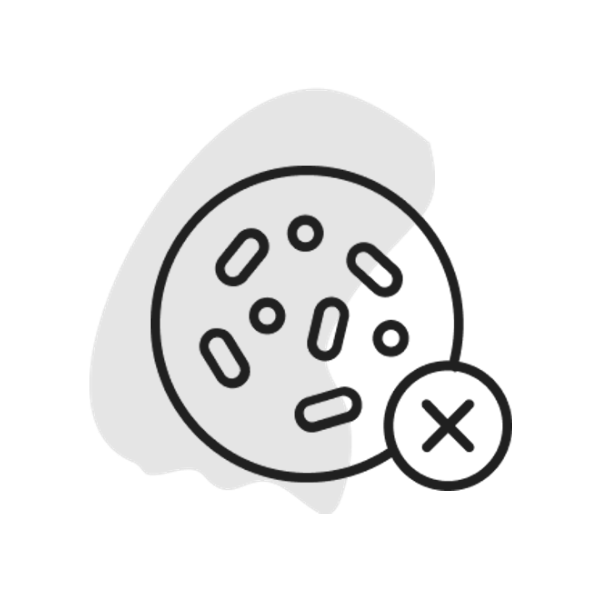6 min read / 16 December 2021 / Laura Garvin Gomez
Benefits and Uses of Fir Needle Oil
The world's most popular Christmas tree yields a healing, highly protective oil.

Cleansing, stimulating fir is useful for far more than being decorated for Christmas.
Extracted from fir needles and harvested all over the world, fir needle essential oil is a powerful natural product.
Its aromatic scent is reminiscent of cold weather and wintery forests, but this oil is useful all year round for everything from fighting infections and soothing sore throats to providing us with a natural, clean fragrance for our bodies.

What is Fir Needle Essential Oil?Also known by the botanical name Abies Alba, fir needle oil is just one variation of essential oils derived from coniferous trees. pine needle, maritime pine, and black spruce can all also be extracted from this type of plant, and many of them contain similar properties as a result. Fresh and earthy, fir needle oil can come from many regions including Canada, Siberia and Japan, though the trees themselves are grown all over the world. The leaves and twigs of these trees are steam distilled and collected to provide a pale yellow, balsamic-like oil that can be heavily utilised in aromatherapy. |
What are the benefits of Fir Needle Essential Oil?
Fir needle oil can be found in a number of cosmetic applications including perfumes, bath oils, and air fresheners as a result of its clean scent – but its contributions to day-to-day wellness don’t just end there.
Fir needle has been known to carry several medical advantages as well, including, but not limited to:
- Fighting infections
- Relieving pain
- Opening the airways
- Eliminating body odour
- Detoxifying the body

Can fir needle essential oil fight infections?
Fir needle displays powerful antiseptic abilities and is filled with high concentrations of natural compounds to prevent infections and provide first aid.
A study in 2006 found that fir needle was effective against staph infections thanks to three of its natural constituents in particular: alpha-pinene, beta-caryophyllene, and alpha-humulene.
These components, along with others, allow the oil to combat many different microorganisms, as shown in a 2015 review which concluded that the oil had a notably strong antimicrobial effect.
Due to these properties, fir needle makes a fantastic addition to natural cleaning sprays and can be combined with water and emulsifying dish soap to add an extra sparkle to floors and surfaces.

Using fir needle oil to help prevent pain
Fir needle oil is said to be excellent for swift healing and pain relief, especially when it comes to muscle aches or joint pain.
An analgesic oil, fir needle can stimulate the body and help bring blood to the surface of the skin. This can increase the rate of internal and external healing - speeding up the recovery process and lessening the length of suffering.
It can also be incredibly soothing as a result of its balsamic roots and is even said to aid in bone repair and strengthening over a period of time.
Applying some fir needle essential oil to the skin with a carrier oil can help to relieve symptoms of pain and improve day-to-day functioning, as well as achieve long-term wellness effects.

Does fir needle essential oil improve respiratory function?
Although fir needle has applications in every season, one of its benefits makes it particularly useful in the winter months.
The colder weather can bring with it some nasty coughs, colds, and sore throats that can prevent us from carrying out our daily routines – but thankfully, the Christmas-like scent of fir needle can help aid these conditions as well as facilitate a festive atmosphere.
A study in 2009 confirmed that fir needle oil was an effective treatment for respiratory conditions - such as lingering coughs or sore throats – that accompanied the common cold and flu.
It is thought that these benefits are a result of the oil’s ability to loosen mucus, allowing it to be expelled and clear the airways for instant relief.
Fir needle oil also has an anti-inflammatory effect on the throat and bronchial tubes, which helps to ease discomfort and pain caused by blockages.
This oil can be particularly useful towards the end of a cold or the flu as it may help shake lingering symptoms that are preventing you from going back to your normal self.

Can fir needle be used as a natural deodorant?
Fir needle has a fresh, aromatic scent that can help to mask unpleasant odours, both in the home and on the body.
The antibacterial effects found in fir needle can also help it to neutralise bacteria that might result in foul body odour.
Diluting fir needle with a carrier oil and dabbing it under the armpits or on the neck can be a great natural alternative to commercial deodorants - reducing exposure to chemical components as well as maintaining freshness and cleanliness.

Fir needle essential oil can detoxify the body
It is said that fir needle may contain active compounds that can encourage the body to rid itself of harmful toxins caused by free radicals.
Free radicals can cause a lot of harm to the inner systems of the body if left without defences to treat them, and fir needle can encourage the body to fight them by stimulating the liver as well as destroying surrounding bacteria.

How to use Fir Needle Essential Oil
Aromatherapy
Diffusing the fresh, lightly woody scent of fir needle into the air can be extremely beneficial when recovering from a cough or cold – particularly if you’re experiencing stubborn, lingering symptoms.
The scent of fir needle can also function as a natural air freshener and can help rid of airborne bacteria while filling your environment with a clean, festive aroma.
Bath
If you don’t have a diffuser or oil burner to hand, you can add a few drops of fir needle essential oil to your bath instead.
This can be a particularly beneficial use If you’re experiencing respiratory issues, as the steam combined with the oil’s refreshing scent can help clear your airways in a highly effective manner.
Massage
Fir needle contains strong anti-inflammatory properties that can be used to help heal painful muscles and joints.
Apply a few drops with a carrier oil to problem areas for soothing relief and gradual healing. You can also massage this mixture onto the chest area to help relieve tightness.

History of Fir Needle Essential Oil
Fir needle was used extensively by the Native Americans for religious and medicinal purposes. Most notably, they would stuff pine needles in their pillows as a way to promote peaceful sleep, and the resin of the tree was also used as a sudatory for women after giving birth.
The oil was also used by Ancient Egyptians to help cleanse the scalp and facilitate hair growth, so it is possible that these benefits may still hold some weight today.
Fir needle may be most famous for lighting up our living rooms during the festive season, but its more than just a pretty face.
Its protective, healing abilities help us to feel our best in every season, which makes fir needle essential oil a pretty good gift to put under the tree.
|
Product Name |
100% Pure Fir Needle Essential Oil |
| Botanical Name | Abies Alba |
| Scent Type | Fresh |
| Benefits & Uses | Antibacterial, Cleaning Agent, Decongestant |
| Suitable for Diffusers? | Yes, this fir needle essential oil is perfect for diffusers. |
| Suitable for Candles and Soaps? | Yes, this fir needle essential oil is perfect for candle and soap making. |
| Extraction Method | Steam Distillation |
| Bottle Type | Tamper proof and UV resistant |










